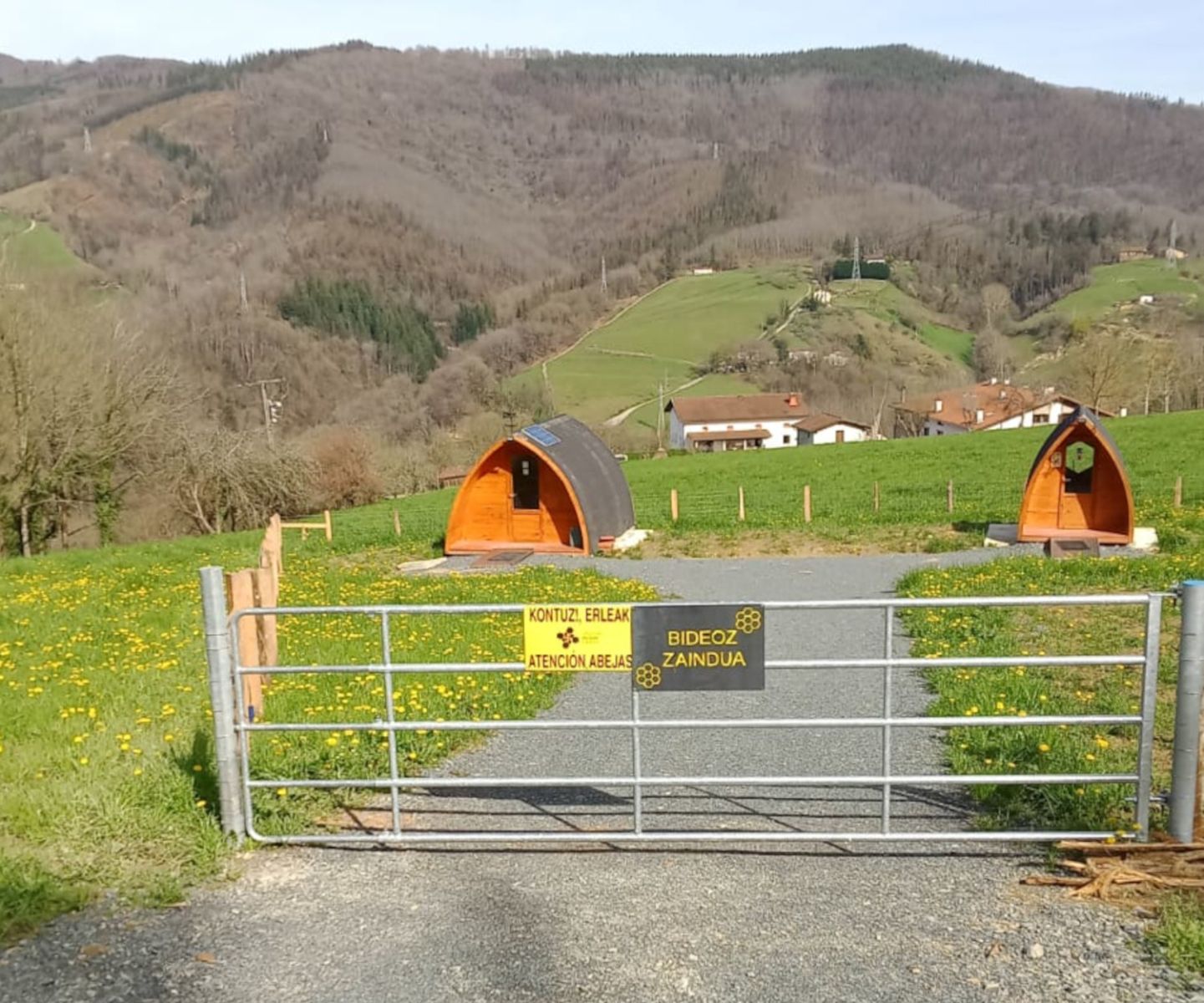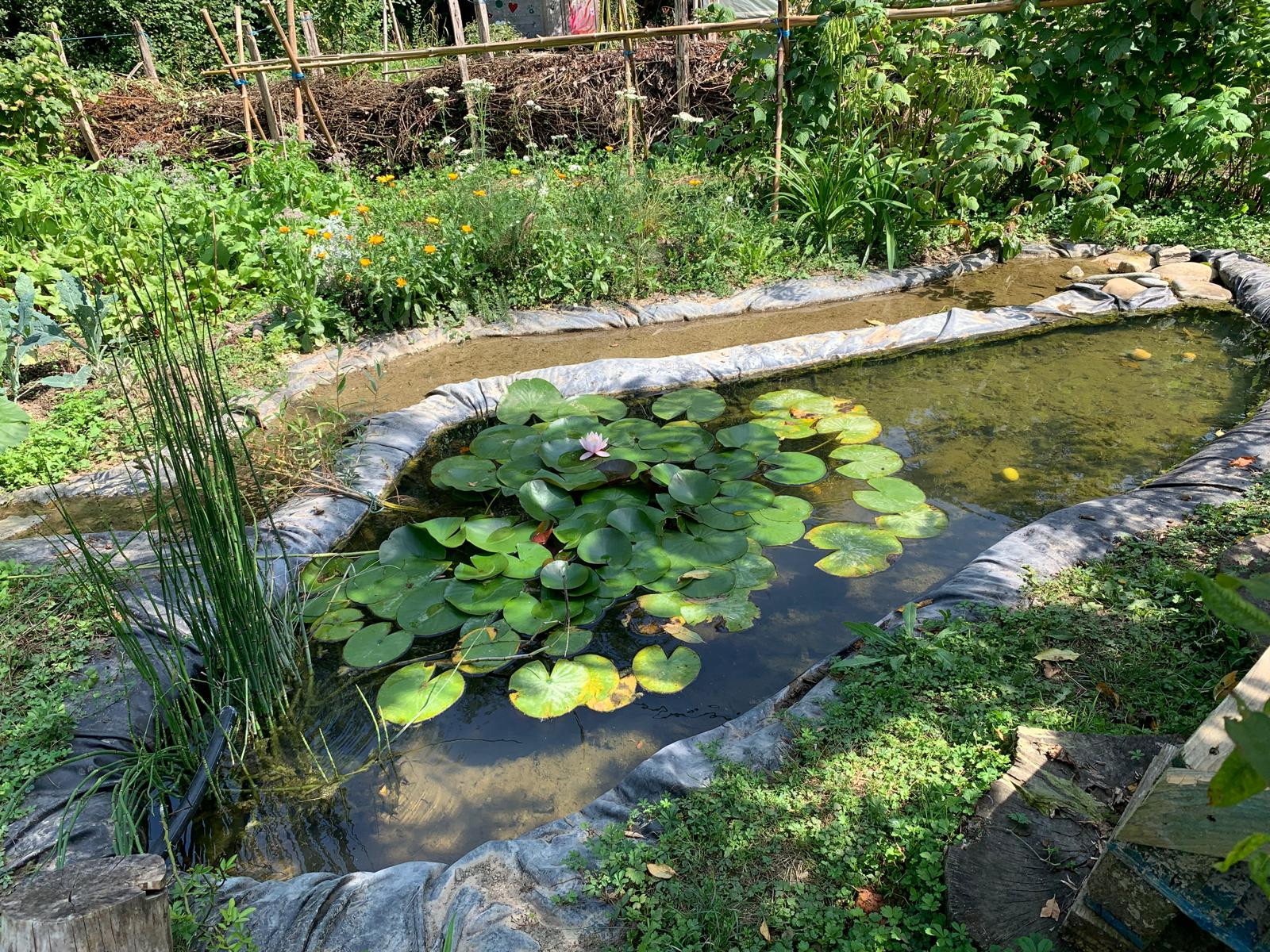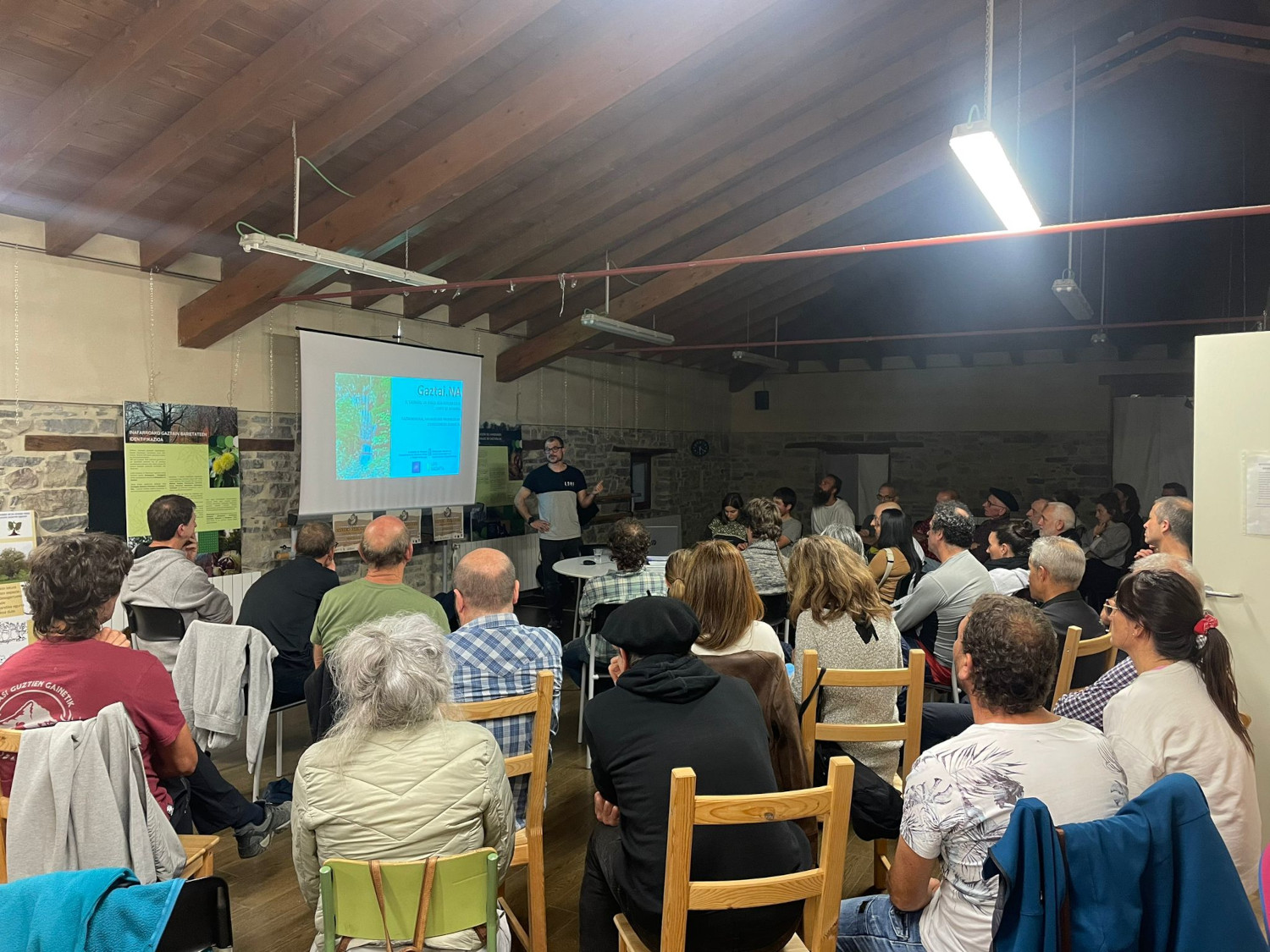Benefits of Hive Air Inhalation
- The collaboration between beekeeper Eladi Balerdi and bee enthusiast José Manuel Atxaga has recently generated an innovative project. They propose the activities "Breathing the air of the hive" and "The sauna of bees", convinced that they are beneficial for health and especially for the respiratory system.

Balerdi is part of the Azkonita beekeeping project and uses its hives in its new activity. Atxaga, although not a beekeeper, has long been immersed in the world of apiculture products. He knew about this special activity that was underway in Catalonia and other places, and it occurred to him to bring Euskal Herria.
Learning from the Catalan experience
Atxaga discovered that another project similar to Sabadell was underway, and there it all started. “I called my partner directly and visited his facility to learn what the activity was like,” he explains. He then started working to bring that model to Gipuzkoa, and then contacted Balerdi, who he had known for a long time. “We have had to ask for permissions to do apitherapy, and for me this is also new, because until now I just produced honey, royal jelly, etc.,” says Balerdi.
Besides in Catalonia, in the eastern countries of Europe, the breathing of the air from the hive and the sauna of the bees are relatively frequent activities. However, Balerdi and Atxaga rely on the Catalan experience: “She tells us her experience and says that people who have gone with asthma or other problems have benefited, so it’s about testing.” Her broadcast message highlights the benefits of seasonal allergies, the immune system, lung capacity, stress, insomnia, anxiety and parkinson's. “According to a study by the University of Catalonia, that of the hive for people is ten times better than the air of better quality that we can breathe abroad,” says Atxaga.

Casetas in carboneras
They offer two services in the cabins installed on the Ikaztegieta plot. In the first caset there are five hives, each of which has an extractor with a small mask for the client to breathe the air in the hive. It's a half-hour activity. The second, called "Bee Sauna," works like this: six hives have been placed open from above in a house; in the room there are two bunk beds under each of which the hives are closed with a net. The hive is usually 35 degrees producing heat. It's a one-hour session. “It creates a special atmosphere, the sound and vibration of bees… all that is felt by the tombs,” explains Balerdi.
The beekeeper insists that from one day to the next this is not a miracle activity that solves the problem, which needs continuity. But he says the best thing is for people to try it directly and decide whether or not it does it right. “You have to try it and if you do it right, then go ahead.”
For further information or contact the project members, two telephones have been provided:
618 25 49 71 and 639 18 78 09.
Iruñean bizi ziren Iñaki Zoko Lamarka eta Andoni Arizkuren Eseberri gazteak, baina familiaren herriarekin, Otsagabiarekin, lotura estua zuten biek betidanik. “Lehen, asteburuetan eta udan etortzen ginen eta duela urte batzuk bizitzera etorri ginen”, dio... [+]
Gipuzkoako hamaika txokotatik gerturatutako hamarka lagun elkartu ziren otsailaren 23an Amillubiko lehen auzo(p)lanera. Biolur elkarteak bultzatutako proiektu kolektiboa da Amillubi, agroekologian sakontzeko eta Gipuzkoako etorkizuneko elikadura erronkei heltzeko asmoz Zestoako... [+]
Emakume bakoitzaren errelatotik abiatuta, lurrari eta elikadurari buruzko jakituria kolektibizatu eta sukaldeko iruditegia irauli nahi ditu Ziminttere proiektuak, mahai baten bueltan, sukaldean bertan eta elikagaiak eskutan darabiltzaten bitartean.





















